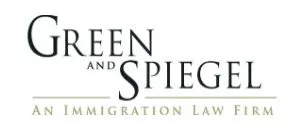In an unsigned, per curiam opinion issued today, the Supreme Court of the United States has agreed to hear the revised Trump Travel Ban cases on their merits in the Court's 2017-18 term which begins in early October. The Court has also partially lifted the injunction preventing the Executive Order from going into effect. Specifically, except for applicants that can establish "a credible claim of a bona fide relationship with a person or entity in the United States" the ban is now in effect for both new visa applicants from six Muslim-majority countries (Iran, Libya, Somalia, Sudan, Syria and Yemen), as well as applicants for refugee status.
By way of background, in January, the Trump Administration issued its first version of its travel ban, which was blocked nationwide after creating chaos in airports around the world and preventing countless individuals, including our own clients, from entering the U.S. In March, this first executive order was superseded by the one to be considered by the Court, which was narrower in its application in many respects. This "Travel Ban 2.0" was similarly dealt defeats by two District Courts, followed by the Fourth Circuit Court of Appeals and later the Ninth Circuit. The instant cases were brought by state agencies, the University of Hawaii, and nonprofit refugee organizations.
Injunctive relief is an equitable measure considered by courts that involves, among other things, balancing hardships between affected parties. The Court's decision walks back the existing injunctions which had applied worldwide, criticizing the lower courts' rulings which applied to "foreign nationals abroad who have no connection to the United States at all" and would presumably not result into a concrete and legally relevant burden to a U.S. person or entity or specific foreign national. Accordingly, the ban remains enjoyed with respect to the named parties and those similarly situated.
The Court discussed such individuals who remain eligible for travel as follows:
For individuals, a close familial relationship is required. A foreign national who wishes to enter the United States to live with or visit a family member [...] clearly has such a relationship. As for entities, the relationship must be formal, documented, and formed in the ordinary course, rather than for the purpose of evading [the Travel Ban]. The students from the designated countries who have been admitted to the University of Hawaii have such a relationship with an American entity. So too would a worker who accepted an offer of employment from an American company or a lecturer invited to address an American audience. Not so someone who enters into a relationship simply to avoid §2(c): For example, a nonprofit group devoted to immigration issues may not contact foreign nationals from the designated countries, add them to client lists, and then secure their entry by claiming injury from their exclusion.
In a concurring and dissenting opinion, Justices Thomas, Alito, and Gorsuch argued that the Court's decision will prove to be unworkable until the case can be fully decided on its merits, inviting "a flood of litigation." These three justices instead argued that the injunctions should be lifted completely, hinting that they are likely to ultimately rule in favor of the Trump Administration on the travel ban issue.
Today's decision brings mixed news for the litigants. While the President issued a celebratory statement indicating that the ban will become "largely effective" most potentially affected cases, in our view, are still covered by the lower courts' injunctions. Our clients who have close family members in the United States, have received job offers from U.S. business and institutions, or invested into U.S. businesses for immigration benefits should be able to procure visas and gain entry until the Court issues a final decision on the merits. On the other hand, the Court's reasoning does severely limit the lower tribunals' injunctions severely.
What is yet unknown is how Customs and Border Protection will process admission to the United States for those already issued visas (most notable B-1/B-2 visitor visas). Whether such individuals will be subject to additional scrutiny at the border remains unknown at this point.
We will continue to monitor developments with regard to these cases, including agency guidance to be issued in the wake of today's ruling.
The content of this article is intended to provide a general guide to the subject matter. Specialist advice should be sought about your specific circumstances.

